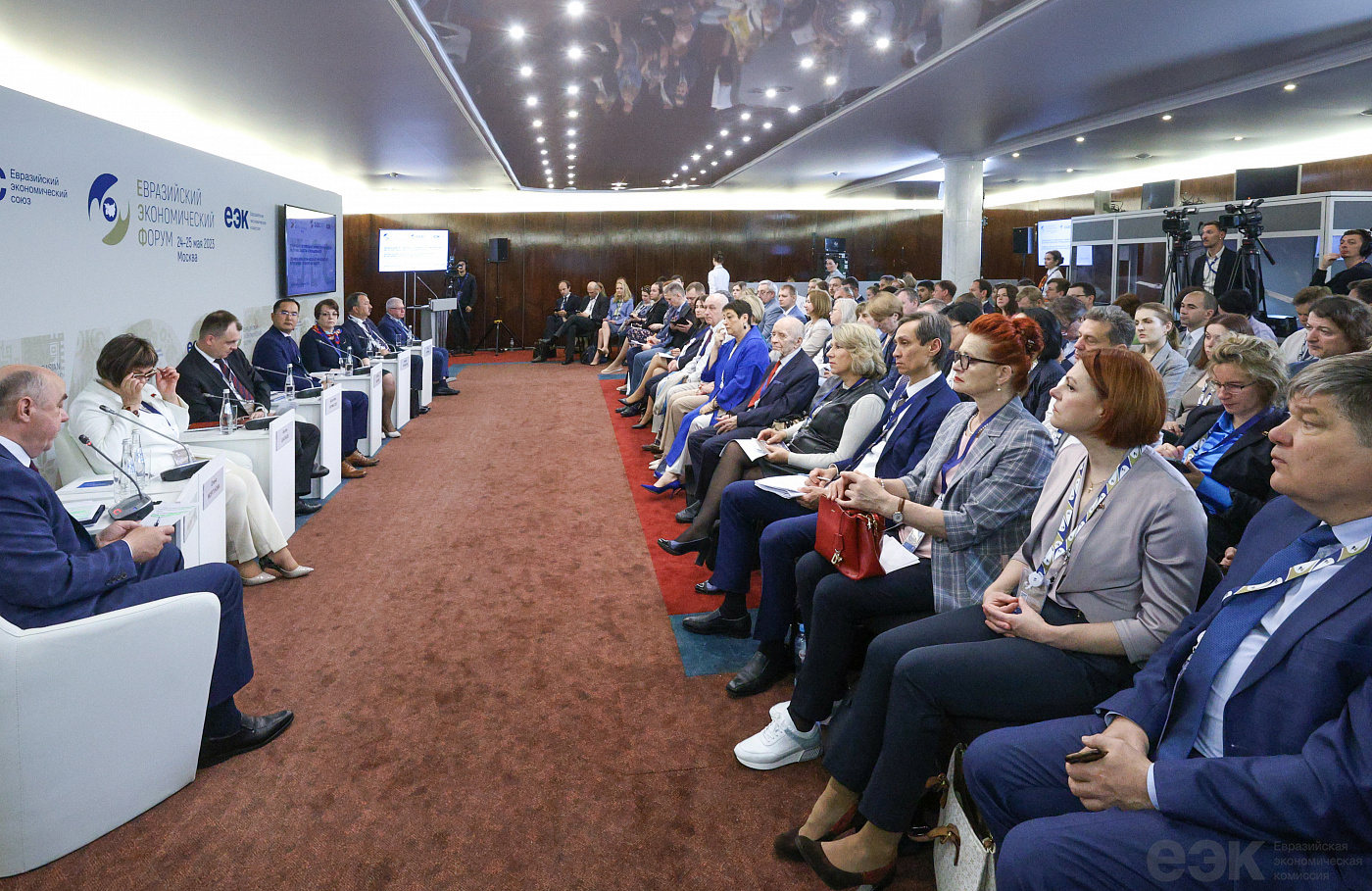News
From minimum safety requirements to comprehensive quality assurance
This is the strategy for developing the technical regulation system of the Eurasian Economic Union as seen by Viktor Nazarenko, Minister in charge of Technical Regulation of the Eurasian Economic Commission, who chaired the thematic session "Technical Regulation and Quality Infrastructure in the Service of Society and Industry" within the 2nd Eurasian Economic Forum.
“Integration in the economic sphere is largely determined by the unity of the legal framework that establishes requirements to products and the rules for their admission to the market,” the EEC Minister stated.
The session attendees, representing the EAEU States' authorized bodies in the field of technical regulation, standardization, business communities and consumer organizations, discussed a wide range of issues related to the development and improvement of the EAEU unified system of technical regulation.
Strengthening state supervision of unsafe products and eliminating the improper issuance of conformity assessment documents were the main topic of speeches by Kuanysh Yelikbaev, Chairman of Technical Regulation and Metrology Committee of the Ministry of Trade and Integration of the Republic of Kazakhstan, and Andrey Lotsmanov, Deputy Co-Chairman of the RUIE Committee on Industrial Policy and Technical Regulation of the Russian Union of Industrialists and Entrepreneurs.
“Today, there are two main instruments of market protection – conformity assessment and state supervision. And while we actively improve the first mechanism, the second one - state supervision - shows its inability to efficiently counteract the circulation of unsafe products in most EAEU countries," Viktor Nazarenko noted, commenting on the speeches of his colleagues. “It is obvious that state supervision measures should be focused directly on product safety, and not only on document inspection”.
At the same time, it is reliable information from state supervision bodies, enabling to really assess the state of the EAEU goods market, that is critical for decision-making in the field of unified technical regulation, the EEC Minister is convinced.
Anton Shalaev, Head of Rosstandart, drew attention in his speech to the need for accelerated development of standardization within the EAEU as a tool to support and develop the mandatory and voluntary sphere. The demand for standardization by the domestic industry to ensure the quality and competitiveness of products is evidenced by the fact that most of the standards developed in the Russian Federation in 2022 provide exactly the voluntary sphere.
Elena Morgunova, Deputy Chairman of Gosstandart of the Republic of Belarus, shared her experience in product assurance planning at the state level and the practice of state supervision in the Republic of Belarus with the session attendees. The speaker drew the audience's attention to the need to address the issue of joint financing by the EAEU countries for developing interstate standards for the purposes of unified technical regulation.
“Regulation of product quality issues at the state level plays a huge role in promoting the continuous improvement of the product competitiveness. Along with that, the elements of the technical regulation system: standardization, conformity assessment, accreditation and ensuring the uniformity of measurements, create a basis enabling the domestic industry to work out breakthrough technical solutions and manufacture quality competitive products”, the EEC Minister stressed.
Bolotbek Nurmatov, Director of the Center for Standardization and Metrology under the Ministry of Economy and Commerce of the Kyrgyz Republic, declared for the importance of cooperation in ensuring the uniformity of measurements and the establishment of the Council of Heads of Measurement Assurance Bodies in the EAEU. He noted that the experience of similar Councils of Heads of Standardization and Accreditation Bodies, which had been functioning in the Union for several years, showed the efficiency of such platforms for the joint solution of crucial tasks.
The session participants expressed a consensus on the need to expand coordination within the EAEU both in standardization with a gradual transition to a coordinated policy in this field within the EAEU, and in the product quality assurance.
The efficient functioning of all quality infrastructure elements in the Union, from the procedures for establishing uniform technical requirements at the Union's level as a whole to the work of conformity assessment bodies, testing laboratories, and state supervision bodies, is the key to the market of safe products and ensuring consumer confidence. This, in turn, is the aim of the concept to create a unified product quality assurance system in the EAEU being developed under the auspices of the Commission and widely discussed by the Union's professional community. The need for its adoption and implementation was recognized by the session attendees as an important long-run objective.





